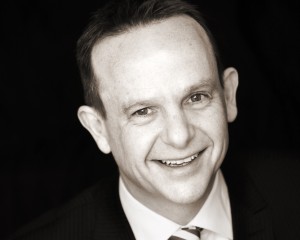The need for Bath’s Business Improvement District (BID) to continue for another five years and for more powers to be devolved from London to the region were among the calls to action at an economic seminar and panel debate staged by Barclays.
BID chief executive Andrew Cooper spoke at the event on the benefits that the BID had brought over the past five years– including investment of £1m to improve the city centre – while the panel of expert speakers tackled the issue of devolution and how the West could compete with the so-called Northern Powerhouse, among other topics. 
Ballot papers have been sent to more than 655 businesses, including retailers, offices, cafés and bars, as the BID seeks a further five-year term.
The event, staged at Bath Cricket Club, heard there was widespread confidence among businesses in the Bath and across the West of England, although panel member CBI regional director Deborah Waddell said businesses were still having to work extremely hard to be successful because of issues such as the region’s poor infrastructure – including vastly inadequate broadband – a lack of skilled workers and destabilising factors such as the EU referendum.
Fellow panellists Andrew Fraser, an international trade adviser with UK Trade & Investment (UKTI), and Julie Smith, head of Barclays Trade & Working Capital in the South, pointed to continued growth among the businesses they work with as the global economy improved.
These firms were now accessing funding and looking at new export markets.
On devolution of powers and spending to the region from Whitehall, Deborah Waddell urged businesses to “raise their voice and get involved”.
She said businesses needed to ensure they were at the table when the key decisions were being made, adding that it was for “the business community to make decisions around devolution rather than politicians”.
The panel agreed that the West of England possibly lacked a single point of representation due to its diversity, although the region should not be underestimated as it had great products and services.
The panel also felt that Bath would benefit from the electrification of the main railway line to London as it would bring more talent to the region attracted by property prices that were cheaper than London. It would make Bath commutable to the capital, meaning more affluent people would set up business in in the city and surrounding area.
Andrew Cooper urged city centre firms to use their vote to continue with the BID and usher in another five years of investment.
BID levy payers have also received a copy of the BID’s business plan which lays out in detail the case for funding new projects vital to the continued economic vibrancy of Bath as well as continuing with existing ones.
He spoke about how events such as this month’s Great Bath Feast had helped attract up to 5m visitors a year to the city.
The BID’s plans for 2016-2021 period include developing the early evening economy, and introducing Welcome Hosts in key areas such as train station.
The event also heard from Will Hobbs, Barclays head of investment strategy UK and Europe, who shed light on the world economy and shot down the arguments of some of the doom mongers predicting another, imminent global crash.
He said concerns about a meltdown in China were misplaced – “the economy there is slowing but not necessarily crashing. China’s ability to bring down the world economy is massively overstated”, he said – while the European Central Bank had been extremely effective in sorting out the European banks by centralising regulation which meant the Europe was continuing to recover.
He also said worries that there was too much debt were not borne out by looking at it in historic terms while fears by some economists that the forecast interest rates rises next year would choke off growth were also wrong.
Much of this came from the fact that many economists now in post had never witnessed any upward movement in interest rates. “The iPhone didn’t exist the last time the US raised interest rates,” he said.



















